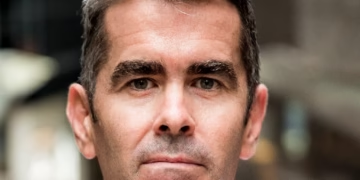- 06-AUG-2020
-
- Adjusted EBIT declines to minus 1.7 billion euros in the second quarter despite significant cost reductions
- Comprehensive “ReNew” restructuring programme to ensure global competitiveness after the crisis
- Lufthansa Cargo with strong second quarter
- Number of employees already reduced by 8,300 – redundancies no longer ruled out in Germany as well
- Normalization of demand to pre-crisis level expected for 2024 at the earliest
The collapse in demand for air travel due to the Corona pandemic led to an 80 percent drop in revenue for the Lufthansa Group in the second quarter to 1.9 billion euros (previous year: 9.6 billion euros). Most of the revenue (1.5 billion euros) was generated by Lufthansa Cargo and Lufthansa Technik.
- The Lufthansa Group Adjusted EBIT in the quarter under review amounted to minus 1.7 billion euros (previous year: 754 million euros), despite extensive cost reductions. Operating expenses were reduced by 59 percent, primarily through the introduction of short-time working for large parts of the workforce and the cancellation of non-essential expenditures. However, these measures were only partially able to compensate for the decline in sales. The consolidated net income of Lufthansa Group for the months April to June amounted to minus 1.5 billion euros (previous year: 226 million euros).The logistics division benefited from stable demand. The loss of cargo capacity in passenger aircraft (“bellies”) led to a significant increase in yields. Lufthansa Cargo’s Adjusted EBIT thus rose to 299 million euros (previous year: minus 9 million euros).
- Traffic development in the second quarter of 2020
In the second quarter of 2020, the Lufthansa Group airlines carried 1.7 million passengers, 96 percent fewer than in the previous year. Capacity fell by 95 percent. The seat load factor was 56 percent, 27 percentage points below the previous year’s figure. Freight capacity offered fell by 54 percent due to a lack of capacity on passenger aircraft. The decline in freight kilometers sold was 47 percent. This reflects an increase in cargo load factor by 10 percentage points, to 71 percent. - Lufthansa Group decides on “ReNew” restructuring program
The Group currently expects demand for air travel to return to pre-crisis levels in 2024 at the earliest. Lufthansa Group has therefore decided on a comprehensive restructuring programme entitled “ReNew”, which also includes the restructuring program already underway at the airlines and service companies.The aim remains to maintain the global competitiveness and future viability of the Lufthansa Group. The program includes the reduction of 22,000 full-time jobs in the Lufthansa Group. The Group’s fleet is to be permanently reduced by at least 100 aircraft. Nevertheless, the capacity offered in 2024 is to correspond to that of 2019. To this end, productivity is supposed to be increased by 15 percent by 2023, among other things by reducing the number of the flight operations (AOCs) to a maximum of ten in future. The size of the Executive and Management Boards of the Group companies will be reduced and the number of executives in the Group is supposed to be lowered by 20 percent. In the administration of Deutsche Lufthansa AG, 1,000 jobs will be cut. The sum of these measures should make it possible to refinance the funds of the stabilization package as quickly as possible. The financial planning of Lufthansa Group stipulates that positive cash flows will be generated again in the course of 2021. Lufthansa Group currently (as of 30 June 2020) has 129,400 employees, about 8,300 fewer than at the same time last year. The Group’s objective was to avoid redundancies as far as possible. Against the background of the market developments in global air traffic and based on the course of the negotiations on necessary agreements with the collective bargaining partners, this goal is no longer realistically within reach for Germany either.Carsten Spohr, Chairman of the Executive Board and CEO of Deutsche Lufthansa AG, said: “We are experiencing a caesura in global air traffic. We do not expect demand to return to pre-crisis levels before 2024. Especially for long-haul routes there will be no quick recovery.
We were able to counteract the effects of the coronavirus pandemic in the first half of the year with strict cost management as well as with the revenues from Lufthansa Technik and Lufthansa Cargo. And we are benefitting from the first signs of recovery on tourist routes, especially with our leisure travel offers of the Eurowings and Edelweiss brands. Nevertheless, we will not be spared a far-reaching restructuring of our business.
We are convinced that the entire aviation industry must adapt to a new normal. The pandemic offers our industry a unique opportunity to recalibrate: to question the status quo and, instead of striving for “growth at any price”, to create value in a sustainable and responsible way.”










































